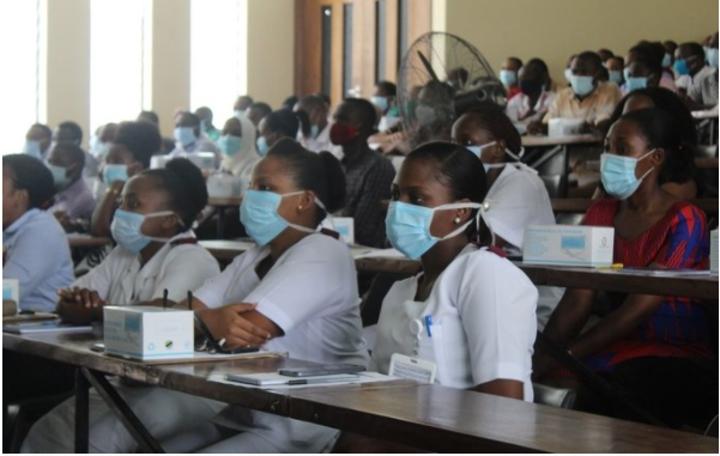Africa-Press – Tanzania. THE government is eyeing a work volunteer programme to absorb unemployed health professionals to work in different health facilities in the country.
The programme is anticipated to reduce the shortage of health personnel in the country, which currently stands at 52 per cent.
Permanent Secretary (PS) in the President’s Office- Public Service Management, Dr Laurian Ndumbaro revealed this during a special symposium to mark 15 years since the establishment of the Benjamin Mkapa Foundation (BMF) and one-year anniversary of the death of former President, Benjamin Mkapa held in Dar es Salaam yesterday.
Dr Ndumbaro said the government has made major strides in improvement of the health sector in several areas, including infrastructure establishment which has come with its own challenges of human resource gap.
“In dealing with the challenge, the government intends to borrow the strategy used by Benjamin Mkapa Foundation by deploying volunteers in remote areas.
“We will develop the government volunteer framework that will enable us to deploy the volunteers in remote areas,” Dr Ndumbaro.
In addition to the programme, the government has been employing other strategies, for example in the current financial year, over 11,000 vacancies in the health carder will be filled and the workers deployed to various health facilities.
He pointed out that the initiatives also aimed at contributing to the attainment of the Universal Health Coverage which requires competent and motivated health care workers at the community-level, distributed equitably and adequately supported.
Besides, another strategy involves working with nonstate actors like the BMF which over the past years recruited over 9000 health workers who are working in public health facilities.
The PS disclosed that with the growing rate of non-communicable diseases in the country, the government needs to mainstream health education from primary education to higher secondary education as a long-standing solution in addressing the problem.
The Chief Executive Officer (CEO) of Standard Chartered Bank Tanzania, Mr Sanjay Rughani who was representing the private sector said 80 percent of what is being produced comes from the private sector Mr Rughani noted that in any country where there is significant progress in the health systems, it is due to collaborative interventions.
“Statistics show that the private sector contributes up to 45 percent in the operating health systems. The private sector has to a large extent extended partnerships through the creation of economic sustainable models,” he said.
He said Africa accounts for 11 per cent of the worlds and 24 per cent of the global disease emanating from the continent. It is clear a lot has to be done because only a percent of global health goes on Africa’s health systems.
United States Ambassador to Tanzania, Mr John Wright urged the government to continue investing on the talent of Tanzania, because the critical need faced by Tanzania today is human resource for health care.
“In some remote areas of the society, 70 percent health care positions are vacant, and overall the vacant rate is 52 per cent, more progress needs to be taken to address this,” stressed the Ambassador.
On her part, Renowned Public Health Specialist, Dr Fatma Mrisho called for full financing of the fifth Health Sector Strategic Plan, strengthening the health system and investment in human resources, particularly where there is a huge gap.
She identified some of the critical areas to include maternal and child health issues which should be made a national priority in collaboration with non-state actors.







